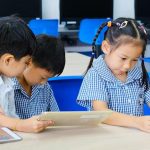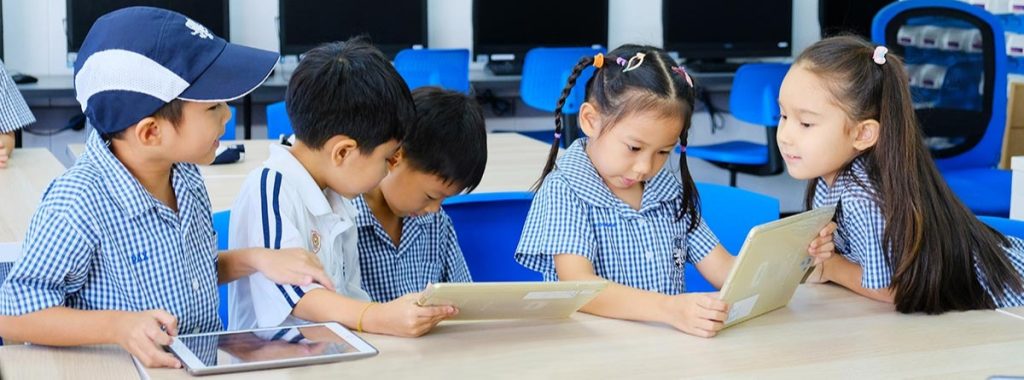In the rapidly evolving digital age, the concept of literacy extends far beyond the traditional ability to read and write. Digital literacy has emerged as a fundamental component of education, encompassing a wide range of skills necessary for students to navigate the modern world successfully. Within K-12 education, digital literacy involves understanding and using technology effectively, critically evaluating digital content, and responsibly creating digital con. As technology becomes increasingly integrated into varying aspects of daily life, the importance of equipping young learners with these skills cannot be overstated. This article explores the critical role of digital literacy in K-12 education, examining its current state, essential components, and integration strategies into the curriculum.
The Current State of Digital Literacy in K-12 Education
The integration of digital literacy into K-12 education varies widely. While some schools have embraced comprehensive digital literacy curricula, incorporating technology use across subjects, others struggle with basic implementation due to challenges such as limited resources, insufficient training for educators, and lack of access to technology for all students. This disparity highlights a digital divide that can exacerbate educational inequalities, underscoring the need for a concerted effort to ensure that all students have the opportunity to develop these essential skills.
Many educators and policymakers recognise the importance of digital literacy, yet the path to its full integration into the school curriculum is fraught with obstacles. The primary challenges include outdated educational policies, budget constraints, and a shortage of professional development opportunities for teachers to become proficient in teaching digital literacy. Additionally, the rapid pace of technological change makes it difficult to keep curricular materials current, posing a significant hurdle to effective digital literacy education.
Despite these challenges, there are promising signs of progress. Initiatives at both local and national levels aim to provide better access to technology, develop teacher training programmes, and create digital literacy standards to guide curriculum development. As these efforts continue to gain momentum, the landscape of digital literacy education in K-12 schools is continuing to develop.

Key Components of Digital Literacy
Digital literacy encompasses a broad set of skills that are essential for students to navigate and succeed in the digital world. Understanding these components helps educators design more effective digital literacy programmes.
The key components include:
- Information Literacy: This involves the ability to search for, locate, evaluate, and use information effectively. In the digital age, students must discern the reliability and credibility of online sources and integrate this information in their academic and personal lives responsibly.
- Computer Literacy: At its core, computer literacy means understanding how computers work and how to use them efficiently. This includes basic software applications, internet navigation, and understanding the principles of coding and programming.
- Media Literacy: Media literacy enables students to critically analyse the messages and content presented in various media formats, including understanding the purpose of media messages and recognising bias and stereotypes. It also involves creating media responsibly and understanding the impact of media on society and the individual.
- Digital Citizenship: Being a responsible digital citizen involves understanding the ethical, legal, and social implications of using technology. This includes issues such as privacy, communication etiquette, copyright laws, and the impact of digital footprints.
Integrating Digital Literacy into the K-12 Curriculum
The integration of digital literacy into the K-12 curriculum is not just about adding a separate class or subject but embedding these skills across all areas of learning. Here’s how it can be done:
- Cross-disciplinary Strategy: Digital literacy should be woven into various subjects, from language arts to science, as a tool to enhance learning and critical thinking. For example, using digital tools to create presentations in history class or analyse data in maths.
- Teacher Professional Development: Educators are key to the successful integration of digital literacy. Ongoing professional development opportunities are essential to equip teachers with the necessary skills and confidence to incorporate digital literacy into their teaching practices.
- Leveraging Technology: Utilise the wide range of digital tools and resources available to foster interactive and engaging learning experiences. This can include educational apps, online collaboration platforms, and multimedia resources.
- Project-Based Learning: Encouraging project-based learning that requires the use of digital skills can help students apply what they have learned in real-world contexts. Projects can involve research, digital content creation, and collaboration with peers, helping to reinforce digital literacy skills.
- Involving the Community: Partnerships with local businesses, libraries, and technology centres can provide additional resources and opportunities for students to practise digital literacy outside the classroom.

Underpinned by the AISL Digital Literacy Curriculum, AISL Harrow Schools have sought to harness the opportunity provided by embedding digital literacy concepts and skills across the curriculum. For example, Harrow International School Shenzhen has been working on integrating digital literacy into all phases of the school. The Early Years (PreK – K1) have looked to integrate a range of targeted initiatives to promote the awareness and safe use of technological and digital devices, the innovate use of new technologies for communication, as well as the development of logical reasoning to predict outcomes through pre-coding activities.
By establishing local strategic partnerships with organisations such as Matatalab, they have been able to provide a range of hands-on opportunities to engage with the fundamentals of coding and robotics. This and other initiatives have all been underpinned with a comprehensive approach to staff professional development through internal and external training opportunities.
As described by Early Years Principal Sophie Lockey “Integrating digital literacy and technology into our curriculum and provision offered has not been without its challenges, but has allowed us to introduce our students earlier to the foundational skills, tools and knowledge they will need to succeed in an every-developing technological rich world.”
Digital literacy is an essential component of K-12 education, equipping students with the skills necessary to navigate the complexities of the digital age. As technology continues to evolve, so too will how digital literacy is taught and integrated into the curriculum. By focusing on the key components of digital literacy, embedding these skills across all areas of learning, and preparing for future developments, educators can ensure that students are not only consumers of digital content but also critical thinkers, problem solvers, and responsible digital citizens. The collective efforts of educators, policymakers, and communities will be crucial in advancing digital literacy initiatives, making technology a powerful tool for learning and personal growth for all students.
Education Technology That You Might Be Of Interest:
Get a special discount by quoting code AISLMALL during CHECKOUT.
Across Cultures - Learning Village Blended Learning for EAL & Multilingual Learners
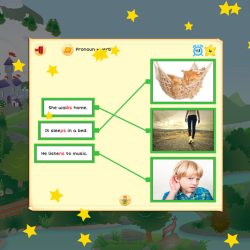
The Learning Village is an image-based English as an Additional Language (EAL) programme for pupils in English-medium schools. Learning Village, a blended vocabulary, language structure and reading programme for EAL, low-level literacy and SEND learners from 6-11 and 12-16 years old.
Book Creator
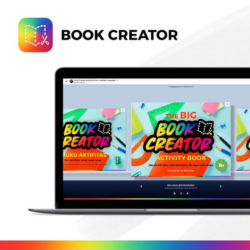
Book Creator was established in 2011 and is based in the UK. Book Creator is a versatile digital tool that allows users of all ages and abilities to create interactive multimedia books. It fosters creativity, collaboration, and digital literacy, supporting various learning styles. With over 2 million books created monthly, it enhances student engagement and learning.
BOOX – E ink tablet Series

BOOX has more than 10 years of experience in developing eye-protection e-books to help you learn more about different types of e-book products. BOOX – E ink tablet Series ; Go Color 7″ (Black) (HKD1,998 with case) Original: HKD2,498 ; Go 10.3 ($2998 with case) Original: HKD3,498 ; 10.3” Tab Ultra C Pro ($4,998 with case) Original: HKD5,498
Cathoven – Language Hub
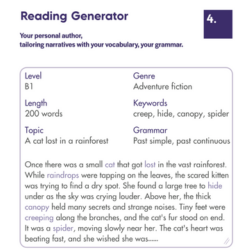
Founded in 2022, Cathoven is a smart assistant tailored for language educators, helping them create level-appropriate lessons and exams, assess and score student work, identify weaknesses, and provide actionable feedback. Used by top institutions like Columbia Uni, Cathoven was ranked the second-best AI in Education project by QS after Duolingo.
Earth Cubs Environmental Content
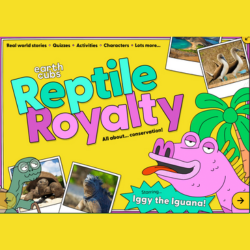
Earth Cubs offers free, award-winning content on sustainability, climate change, and the environment. Through positive storytelling, it inspires young children on topics like renewable energy and equality, aligning with the UN’s Sustainable Development Goals, and is supported by mission-aligned organizations.
ELimu - Learning Games
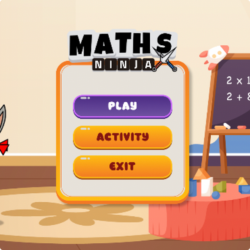
eLimu World is an interactive learning platform designed for kids aged 4-8, offering a range of fun, inquiry-based learning (IBL) games that help children learn better and faster. Our solutions cover key subjects like math and science, using a gamified approach that keeps kids engaged while building essential skills.
KAZ – Specialised and Accessible Touch-Typing Software
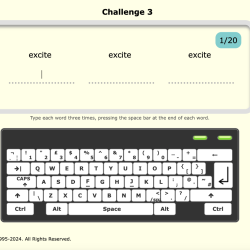
KAZ’s inclusive touch-typing course for home and schools supports mainstream, neurodivergent, hearing-impaired, and visually impaired learners. It’s an online tutorial with minimal teacher intervention, and structured lesson plans are available. Learners can access it from school or home on Macs, PCs, Chromebooks, and iPads.
Nova AI Mentor: Redefining Personalised Learning
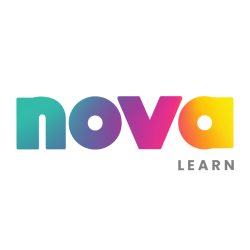
Novalearn Limited is an EdTech company transforming education by seamlessly integrating machine learning, studio-produced edutainment, and quality STEAM education aligned with international K-12 curricula. Enhance school-wide performance with advanced analytics and intelligent recommendations for students. Customisable to your school’s needs and rubrics. Supportive adaptive learning system. Automatic generated reports for teachers and principals.
School365 - SaaS platform
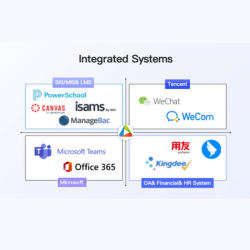
School365 is a SaaS platform designed for K12 international schools in China, offering seamless integration of data and processes. It provides administrators with powerful insights and efficient management tools, while its customizable design ensures scalability to meet the unique needs of schools.

